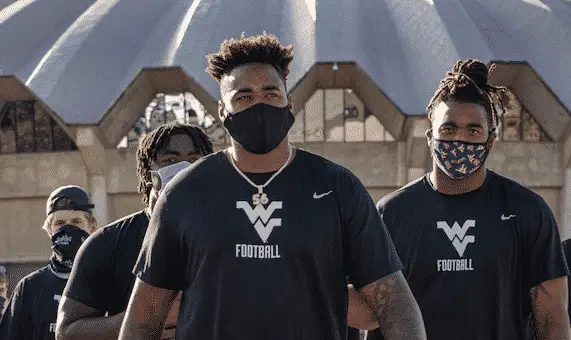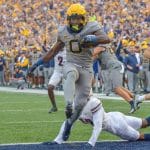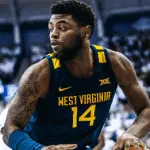
Maya Angelou once wrote “when people show you who they are, believe them the first time.” Over the past few months, some in WVU’s fan base have shown themselves to be easily triggered, emotionally fragile, and hostile to the idea that WVU’s student athletes of color are full fledged human beings, with lives and concerns that transcend football, and not just a source of entertainment.
Kerry Martin’s conflict with WVU defensive coordinator Vic Koenning was our first look under the rock. Martin alleged that Koenning browbeat players with his religious beliefs and frequently interjected his personal political beliefs in interactions with players. His allegations were met with support among teammates and, ultimately, vindicated by Koenning’s exit from the program. But a subset of WVU *fans* labeled Martin “soft” and “disruptive”–for the sin of speaking out, or, incredibly, not following the proper channels for voicing his concerns. This, despite the fact that Martin maintained he voiced his concerns to the coaching staff on more than one occasion, without effect.
Now, the same subset of *fans* are upset by the inclusion, on the back of WVU helmets, of a small sticker–BLM: Black Lives Matter–an assertion of basic human rights and basic human dignity. Nothing more, nothing less.
Objections center around two basic criticisms: (1) that politics should be kept out of college football, and (2) that BLM is a “terrorist organization.“
If you follow sports even casually, then you know that politics, historically, are no more separate from sports then they are from any aspect of human life. The notion is laughable. From Jack Johnson in the 1920’s to Muhammad Ali, John Carlos and Tommie Smith in the 1960’s, and Colin Kaepernick in our own era, athletes have often used the platform of sports to bring the concerns of their communities to broader public attention. And make no mistake: despite the rose-colored view of historical perspective, their triumph was not inevitable. Each was met with resistance and public backlash on the road to broader acceptance: often smeared as “agitators” and “radicals” by their detractors.
Sound familiar?
As Mountaineer sports fans know, politics have intruded into our love of the game on numerous occasions. WVU’s football series with Marshall only came about after arguments were made on the floor of West Virginia’s state legislature. And those games were sponsored by the “Friends of Coal”—a front group for the West Virginia Coal Association–and billed as the “Friends of Coal Bowl.”
Regardless of your stance on coal, it is not apolitical.
The second criticism–that BLM is a “terrorist organization”–is just as easily dismissed. BLM has not been designated by the State Department as a terrorist organization. Its actions meet none of the criteria under federal law that define domestic terrorism. And it appears in no reputable terrorism database as a “perpetrator group.”
When someone tells you “BLM is a terrorist organization,” they are stating an opinion. And not an opinion that is particularly well-informed.
WVU has chosen to lead on an issue of pressing national significance. They have cast their lot with people who know that some issues are larger than the games we use to distract ourselves on a Saturday afternoon. They are opposed by the usual champions of the status quo. They are opposed by people who are consistently on the wrong side of history; people for whom NO form of protest by athletes of color is ever legitimate, no matter how peaceful.
Don’t be that fan. Be better. Because Mountaineers lead. Mountaineers Go First.






